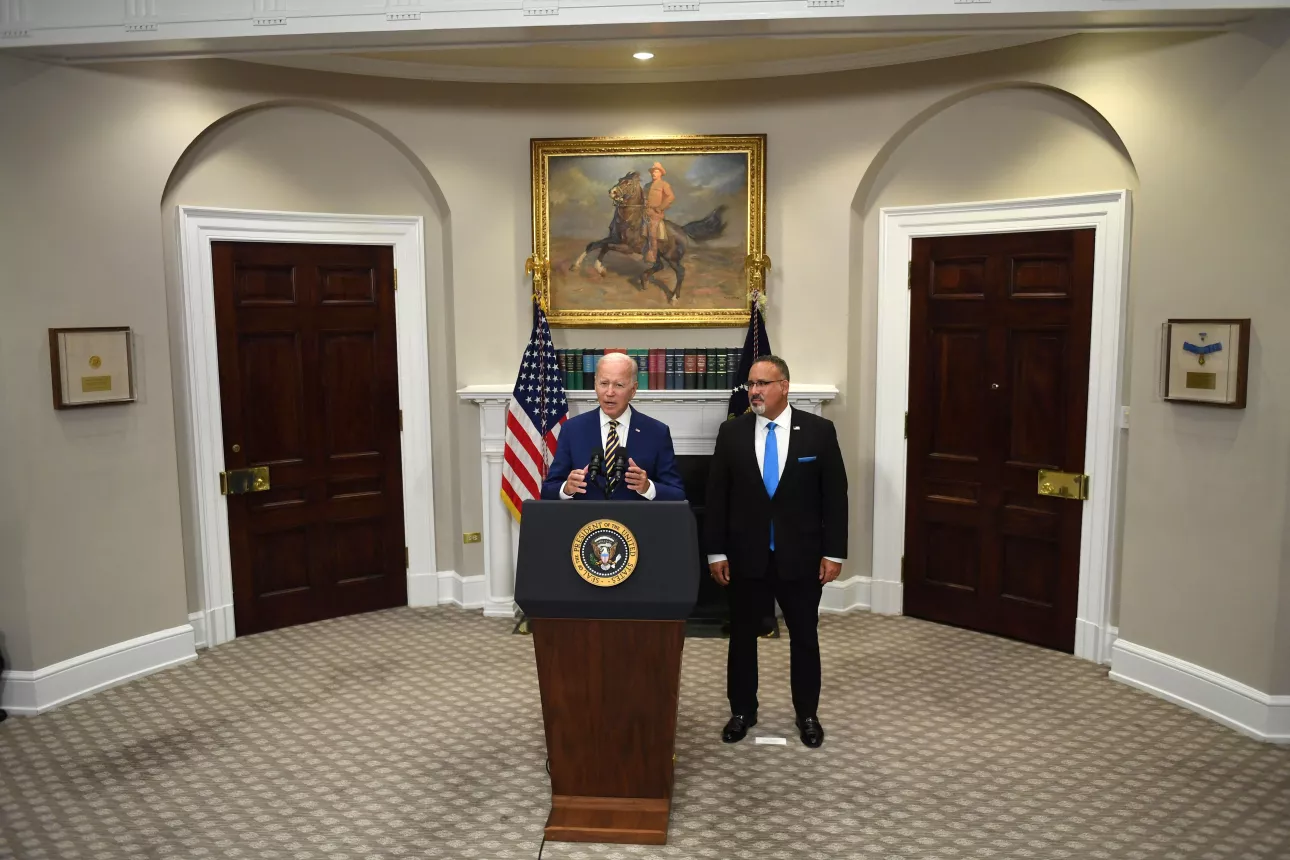by Kaelan Deese, Supreme Court Reporter
An upcoming Supreme Court fight over the Biden administration’s student debt relief plan could see the 6-3 conservative majority employ a similar doctrine that quashed the Obama administration’s landmark power plant emissions rule.
President Joe Biden‘s plan intends to forgive as much as $20,000 in student debt for up to 16 million borrowers. However, some legal experts have suggested the court’s conservative supermajority could scrutinize the program under the so-called major questions doctrine.
The justices relied on the doctrine in 2021 to bar the U.S. Centers for Disease Control and Prevention from extending its pandemic-era eviction moratorium and to block the Biden administration’s vaccine-or-testing mandate for big businesses. Most recently, a 6-3 decision last summer blocked the Environmental Protection Agency’s ability to regulate carbon emissions from power plants, quashing Biden’s attempt to maintain the Obama-era rule.
The conservative Job Creators Network Foundation, which is backing two Supreme Court challenges to the roughly $400 billion plan, has signaled the justices will once again be wrestling over whether the major questions doctrine applies to their considerations of the legality of forgiving millions of borrowers’ college debt. The JCNF filed the lawsuit that resulted in a Texas-based judge pausing the nationwide program in November.
“Last year’s EPA ruling confirmed that the executive branch needs clear congressional authorization to issue sweeping regulations that have vast economic and political significance. The Biden administration’s $400 billion student loan program not only is economically significant, but it also is unprecedented,” Karen Harned, chief legal officer for JCNF, told the Washington Examiner.
The Biden administration argues the COVID-19 pandemic created financial strife for borrowers and has said the repeated pauses to federal student loan payments since 2020 present a higher risk of borrowers defaulting on their payments. The legal justification for the plan relies on the 2003 federal Higher Education Relief Opportunities for Students Act, or HEROES Act, which allows for student debt relief during national emergencies or wartime.
But Harned contended the 2003 law could not be utilized under pandemic justifications “without any input from Congress or the American people,” an argument that has been supported by former lawmakers who helped secure the law’s passage, such as former House Speaker Rep. John Boehner (R-OH).
Chief Justice John Roberts, who authored the EPA ruling, wrote the major questions doctrine “developed over a series of significant cases, all addressing a particular and recurring problem: agencies asserting highly consequential power beyond what Congress could reasonably be understood to have granted.”
While some challengers to Biden’s plan believe the justices will apply similar scrutiny as they did to the EPA rules, other legal experts have speculated the justices may see a distinction between the student loans case and prior rulings that limited executive authority.
“This will help show whether there are any limits to major questions because the government has a strong argument that this is different from any of the past cases,” Robert Percival, director of the environmental law program at the University of Maryland, told E&E News in December.
The Supreme Court will hear oral arguments in two cases challenging the loan forgiveness plan on Feb. 28.
The first arguments will be in Biden v. Nebraska, a challenge against the plan brought by Republican-led state attorneys general. The second case, U.S. Department of Education v. Brown, is centered on whether two student-loan borrowers have the legal justification to bring their lawsuit and whether the Education Department was properly authorized under the HEROES Act.
A ruling over the plan’s legality is expected by the summer.

